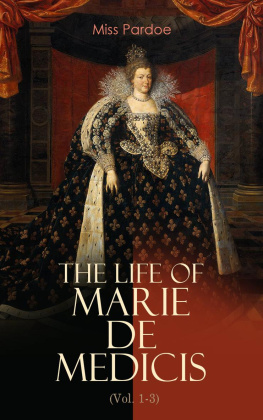The Thousand and One Days;
A COMPANION TO THE
"Arabian Nights."
WITH INTRODUCTION BY MISS PARDOE.
P. 113. P. 113.
LONDON:
WILLIAM LAY, KING WILLIAM STREET, STRAND.
1857.
INTRODUCTION.
The Compiler of the graceful little volume which I have the pleasure of introducing to the public, has conferred an undeniable benefit upon the youth of England by presenting to them a collection of Oriental Tales, which, rich in the elements of interest and entertainment, are nevertheless entirely free from the licentiousness which renders so many of the fictions of the East, beautiful and brilliant as they are, most objectionable for young and ardent minds. There is indeed no lack of the wonderful in the pages before us, any more than in the Arabian and Persian Tales already so well known: but it will be seen that the supernatural agency in the narratives is used as a means to work out totally different results. There is, in truth, scarcely one of these Tales which does not inculcate a valuable moral lesson; as may be seen by reference to "The Powder of Longevity," "The Old Camel," and "The Story of the Dervise Abounadar" among several, others.
The present collection of Eastern Stories has been principally derived from the works of different Oriental Scholars on the Continent, and little doubt can be entertained of the genuineness of their origin; while they have been carefully selected, and do honour to the good taste of their Compiler. An acknowledgment is also due to him for his adherence to the good old orthography to which we have all been accustomed from our childhood, in the case of such titles as "Caliph," "Vizier," "Houri," "Genii," &c.; as, however critically correct and learned the spelling of Mr. Lane may be in his magnificent version of the "Thousand and One Nights," and however appropriate to a work of so much research and value to Oriental students, it would have been alike fatiguing and out of character to have embarrassed a volume, simply intended for the amusement of youthful readers, by a number of hard and unfamiliar words, difficult of pronunciation to all save the initiated; and for the pleasure of the young requiring translation fully as much as the narrative itself.
In one of the Tales there will be at once detected a portion of the favourite old story of Aladdin's Lamp, in the subterranean gem-garden discovered by the handsome youth; while in another, mention is made of the already-familiar legend of the hidden city of Ad, so popular among the ancient Arabs; but these repetitions will cease to create any surprise when it is remembered that the professional story-tellers of the East are a wandering race, who travel from city to city, exhibiting their talent during seasons of festivity, in the palaces of the wealthy and the public coffee-houses. Those admitted to the women's apartments are universally aged crones, whose volubility is something marvellous; and they are always welcome guests to the indolent beauties, who listen to them for hours together without a symptom of weariness, as they pour forth their narratives in a monotonous voice strangely displeasing to European ears. The men, while reciting their tales, indulge in violent gesticulations and contortions of the body, which appear to produce great delight in their audience. Since they generally travel two or three in company; and, save in rare cases of improvisation, their stock of narrative is common to all, it is their ambition so individually to embellish, heighten, and amplify their subject-matter, as to outshine their competitors; and it is consequently to this cause that the numerous variations of the same Tale which have reached Europe must be attributed.
Most of our readers will also recognize in the Story of the Princess Schirine the groundwork of one of Hans Andersen's beautiful Danish Tales, "The Flying Trunk."
Taken altogether, there can be no doubt that the "Thousand and One Days" merit the warm welcome which I trust awaits them.
J. P.
London, Feb. 1857.
CONTENTS.
I.
PAGE
Hassan Abdallah, or the Enchanted Keys
Story of Hassan
Story of the Basket-Maker
Story of the Dervise Abounadar
Conclusion of the Story of Hassan
II.
Soliman Bey and the Three Story Tellers
First Story Teller
Second Story Teller
Third Story Teller
III.
Prince Khalaf and the Princess of China
Story of Prince Al Abbas
Continuation of Prince Khalaf and the Princess of China
Story of Lin-in
Story of Prince Khalaf concluded
IV.
The Wise Dey
V.
The Tunisian Sage
VI.
The Nose for Gold
VII. PAGE
The Treasures of Basra
History of Aboulcassem
Conclusion of the Treasures of Basra
VIII.
The Old Camel
IX.
The Story of Medjeddin
X.
King Bedreddin-Lolo and his Vizir
Story of the Old Slippers
Story of Atalmulc the Sorrowful
Continuation of King Bedreddin-Lolo and his Vizir
Story of Malek and the Princess Schirine
Conclusion
THE "THOUSAND AND ONE DAYS;"
OR,
I.
THE STORY OF HASSAN ABDALLAH; OR, THE ENCHANTED KEYS.
Theilon, caliph of Egypt, died, after having bequeathed his power to his son, Mohammed, who, like a wise and good prince, proceeded to root out abuses, and finally caused peace and justice to flourish throughout his dominions. Instead of oppressing his people by new taxes, he employed the treasures, which his father had amassed by violence, in supporting learned men, rewarding the brave, and assisting the unfortunate. Every thing succeeded under his happy sway; the risings of the Nile were regular and abundant; every year the soil produced rich harvests; and commerce, honoured and protected, caused the gold of foreign nations to flow abundantly into the ports of Egypt.
Mohammed determined, one day, to take the census of the officers of his army, and of all the persons in public situations whose salaries were paid out of the treasury. The vizirs, to the number of forty, first made their appearance and knelt in succession before the sovereign. They were, for the most part, men venerable from their age, and some of them had long beards of snowy whiteness. They all wore on their heads tiaras of gold, enriched with precious stones, and carried in their hands long staves as badges of their power. One enumerated the battles in which he had been engaged, and the honourable wounds he had received; another recounted the long and laborious studies he had pursued, in order to render himself master of the various sciences, and to qualify himself to serve the state by his wisdom and knowledge.
After the vizirs, came the governors of provinces, the generals, and the great officers of the army; and next to them the civil magistrates, and all who were entrusted with the preservation of the peace and the awarding of justice. Behind these walked the public executioner, who, although stout and well-fed, like a man who had nothing to do, went along as if depressed with grief, and instead of carrying his sword naked on his shoulder, he kept it in its scabbard. When he came into the presence of the prince, he threw himself at his feet, and exclaimed, "O mighty prince, the day of justice and of munificence is at last about to dawn on me! Since the death of the terrible Theilon, under whose reign my life was happy and my condition prosperous, I have seen my occupation and its emoluments diminish daily. If Egypt continue thus to live in peace and plenty, I shall run great danger of perishing with hunger, and my family will be brought to misery and ruin."










